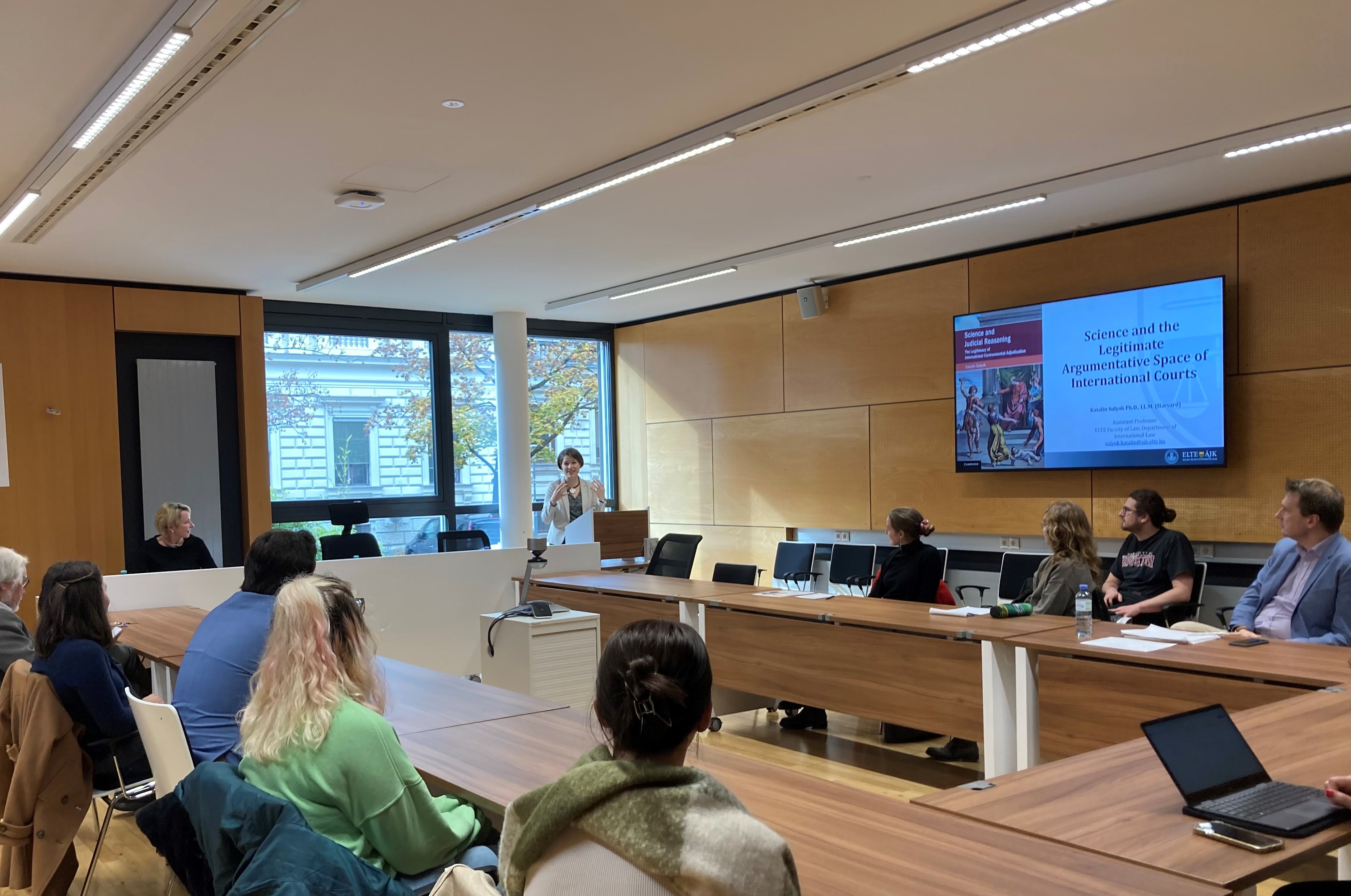In her presentation, which was based on the monograph "Science and Judicial Reasoning. The Legitimacy of International Environmental Adjudication", published by Cambridge University Press, Dr. Katalin Sulyok explored the role of scientific evidence in international adjudication, with a particular focus on environmental disputes.
Scientific knowledge pervades environmental disputes in several ways, which poses challenges for courts in crafting a convincing reasoning that closely reflects on the technical facts of the case, and at the same time, fits with the epistemic competence of judges. In her presentation, Dr. Suyok mapped the epistemically legitimate argumentative space available for judges by identifying four main forms of reasoning in international environmental adjudication, namely scientific, legal, intuitive and hybrid reasoning styles. The talk further discussed the advantages and disadvantages of these reasoning methods for securing the legitimacy of the judgment, and offered parameters which help judges select the appropriate (epistemically legitimate) reasoning style in particular cases.
The Institute of International Law would like to thank Dr. Katalin Sulyok for the interesting lecture and all participants for the interesting contributions to the discussion.
For more information on the GILDS Discussion Series see here.
